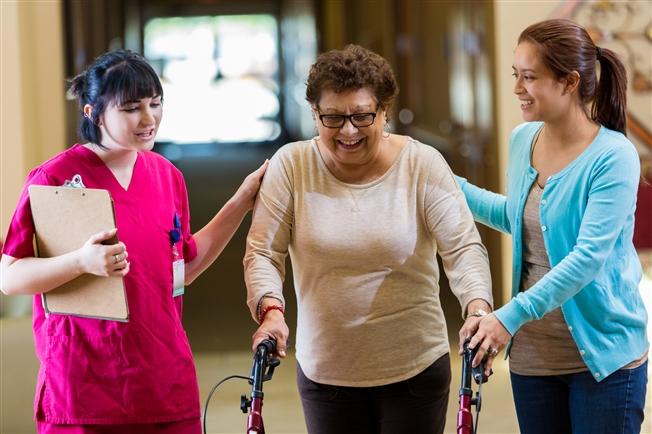Concussions: Not just for kids

Concussion prevention and sport safety are two topics often discussed during the start of the athletic season—and rightfully so.
But wet weather and slick surfaces can also present a concussion risk.
According to the Centers for Disease Control and Prevention (CDC), falls are the leading cause of traumatic brain injury (TBI), which can range in severity from mild to severe traumatic brain injury. Children, teenagers and young adults aren’t the only ones who are affected; adults age 75 and over are at the greatest risk of hospitalization and death as a result of TBI.
“There is a great effort to increase awareness about concussions among athletes and young adults. This is important, but we can’t overlook an aging population that is increasingly affected by concussions and TBI injuries as a result of falls,” says Deborah Watson-Shaeffer, physical therapist at Bryn Mawr Rehab Hospital, part of Main Line Health.
So, even if you’re not the parent of a student athlete or coaching a youth sports team, it might be time to brush up on your knowledge of concussion signs and symptoms—particularly if you’re caring for an aging parent or older adult.
Be on the lookout for symptoms like:
- Confusion, memory problems
- General fogginess
- Headache or pressure in the head
- Balance problems
- Bothered by light or noise
- Double or blurry vision
- Difficulty paying attention
- Ringing in the ears
- Dizziness or lightheadedness
- Nausea or vomiting
- Fatigue
- Irritability, depression or other changes in their mood or behavior
- Difficulty sleeping or changes to their sleeping patterns
- Difficulty with senses of smell and taste
These are considered the traditional signs of concussion, and what you’d likely recognize in yourself or another person who recently suffered a concussion or head injury.
“Contrary to popular belief, concussions don’t disappear after a few hours or a few days. It takes time to recover from a concussion and symptoms can linger,” says Beth Kolar, advanced clinician at Bryn Mawr Rehab.
What to do if you suspect a concussion
When you’re caring for an aging parent or individual, noticing these symptoms is important. But sometimes, it can be hard to tell if symptoms like fatigue, confusion or delayed speech are symptoms of a concussion or just normal parts of aging.
“If you know that a loved one has recently fallen or hit their head and they’re exhibiting any of the symptoms of a concussion, it’s always best to play it safe and visit the emergency room,” says Kolar. “There’s no harm in getting it checked out.”
Protect yourself from a concussion
No matter what age, it’s impossible to guarantee a concussion won’t happen to you. But there are steps you can take to reduce your risk or help someone you care for reduce their risk for concussion.
For starters, address the fall risks that exist in your own home. Keep your hallways free of clutter like toys and clothing, and use bright lighting to illuminate hallways and rooms—particularly stairways—to prevent falls and missteps during the evening.
Because wet and wintry weather presents its own unique risks, there are steps you can take to keep yourself safe and upright outside, too.
“We go to great lengths to protect our bodies and our kids’ bodies during sports; wearing personal protective equipment like mouth guards or helmets. But when we’re walking to the car on a snowy or rainy day, we often don’t think twice about the importance of protecting ourselves,” says Watson-Shaeffer. “The reality is that this puts us at risk, too.”
While you don’t need to start wearing a helmet on your walk from the car to your workplace, Watson-Shaeffer suggests being mindful about walking carefully on slick surfaces and using handrails when available.
Concussion care at Bryn Mawr Rehab
As one of the first acute rehabilitation hospitals in the country to treat brain injuries, Bryn Mawr Rehab has been recognized as a leader in the field of concussion treatment and recovery for more than 17 years. Our team treats over 1000 concussion patients annually at our state-of-the-art Comprehensive Concussion Center at Bryn Mawr Rehab Hospital. Concussion patients come to us with routine to complex injuries, but leave with functional outcomes due in large part to the individualized, creative approach we bring to concussion care.